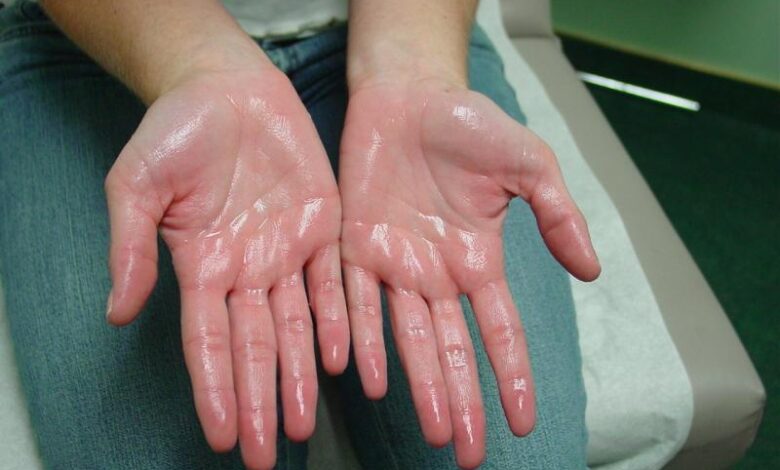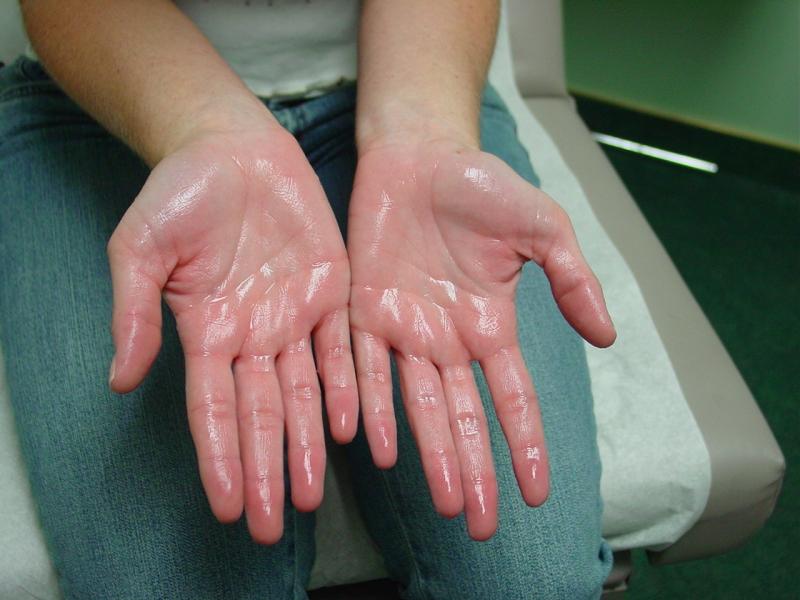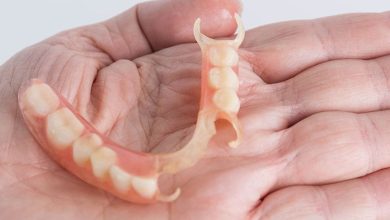PREVENTION AND CURE OF EXCESSIVE SWEATING (HYPERHIDROSIS)
How to prevent sweating(Hyperhidrosis)


Heavy sweating (also known as hyperhidrosis) is a very real and embarrassing problem, but there are some effective ways to treat it. Before you hide under bulky sweaters or move to a chillier climate, you can try these proven techniques for combating excessive sweating.
Table of Contents
Signs and Symptoms of Hyperhidrosis
Excessive sweating is the main symptom of hyperhidrosis.
Feet and toes may always appear prune-like, similar to when you sit in the bath for too long, and the skin on the feet can become red or white, or it may peel or itch.
Hyperhidrosis sweating tends to occur on both sides of the body. So if you have excessive sweating under your right armpit, you’ll also have excessive sweating under your left armpit.
Sweating associated with hyperhidrosis mostly occurs while you’re awake and stops when you’re asleep.
Where Hyperhidrosis Occurs
Excessive sweating can happen in different parts of the body, including: (4)
- Hands (palmoplantar hyperhidrosis)
- Feet (plantar hyperhidrosis)
- Face (craniofacial hyperhidrosis)
- Armpits (axillary hyperhidrosis)
How to prevent sweating
There are several natural and over-the-counter remedies that can reduce or eliminate excess underarm sweating. Some of these include:
1. Use topical antiperspirants
Tired of the sweat stains on your shirt? Try ditching your standard deodorant and switching to antiperspirant. Deodorant might kill the odor under your arms, but it’s not designed to stop you from sweating completely.
Antiperspirants both kill odor-causing bacteria and actively block your sweat glands from producing underarm sweat. This could help alleviate your discomfort.
For some people, however, over-the-counter antiperspirants don’t quite do the trick. If you find that regular antiperspirants don’t work for you, search for stronger antiperspirants with a higher amount of aluminum chloride, the active ingredient (at least 13 percent). And if that doesn’t work, talk to your doctor about getting a prescription for stronger antiperspirant.
It’s also important to make sure you’re applying your antiperspirant correctly so that it can do its job as intended. This means you should:
- Only apply antiperspirant to dry, clean skin (don’t apply it to already-sweaty armpits or armpits that are still damp from showering).
- Use your antiperspirant at night, after you bathe, when your body is coolest; this allows the active ingredient to take its full effect.
- Shave under your arms, as hair can block antiperspirant from doing its job. (However, be sure not to shave immediately before applying it, as antiperspirant can irritate your freshly shaved skin.)
- Give it time to work; it could take up to four days for you to experience the antiperspirant’s full effect.
2. Wait between showering and dressing
After you shower, wait a few minutes before you get dressed for the day. This is especially important if you take hot showers or live in a hot, humid climate. Allowing your body to become cool and dry before you put on clothes could help prevent your underarms from sweating right after you bathe.
3. Shave your armpits
Shaving your underarms could reduce excessive sweating. Hair holds moisture, and underarm hair is no exception. If you’re already experiencing heavy sweating under your arms, shaving is essential. And if you’re constantly fighting body odor alongside the sweat, shaving could also help reduce or eliminate it.
4. Avoid sweat-inducing foods
Did you know that your diet can impact how much you sweat? And some foods can cause your body to produce more sweat than others. If you feel like you’re sweating too much, reducing or eliminating sweat-inducing foods in your diet could help.
Foods with a low fiber content force your digestive system to work overtime to break down your foods. A high-sodium diet means your body will be detoxing all that salt in the form of excess urine and sweat. And eating foods that are high in fat causes your insides to warm as your body processes the fat.
Some other foods and beverages that could trigger sweaty armpits include:
- processed foods
- liquor and beer
- garlic and onions
- foods that have a high fat content
- caffeine
- hot, spicy dishes
- ice cream
5. Eat more foods that reduce sweat
Some foods can actually reduce the amount of sweat your body produces and calm overactive sweat glands in the process. When looking to reduce sweat through your diet, it’s important to focus on foods that won’t tax your digestive system. You’ll also want to seek out foods that don’t overstimulate your nervous system and calm it instead.
Some sweat-reducing foods you might want to incorporate include:
- water
- foods with a high calcium content (like dairy products and cheese)
- almonds
- bananas
- whey
- vegetables and fruits with high water content (e.g., watermelon, grapes, cantaloupe, broccoli, spinach, cauliflower, bell pepper, eggplant, red cabbage)
- olive oil
- oats
- green tea
- sweet potatoes
6. Stay hydrated
Drinking plenty of water and eating foods with a high water content can keep your body cool and prevent excessive underarm sweating.
7. Wear breathable, loose-fitting clothing
Wearing tight clothes especially clothes that are snug beneath your arms can cause underarm stains on your shirt. They can also make you sweat more.
Instead, try wearing fabrics that are breathable and clothes that fit more loosely. This will allow your underarms to cool properly and could help prevent them from sweating and staining your clothes.
8. Skip the caffeine
Caffeine stimulates the nervous system and increases sweating. It also causes your blood pressure to rise, raises your heart rate, and kicks your sweat glands into high gear.
And if you’re a fan of coffee or other hot drinks that contain caffeine, you could be in for an extra sweaty day since hot drinks raise your body temperature and induce sweating. Try decreasing or eliminating caffeine altogether.
9. Stop smoking
The nicotine you take in when you smoke much like caffeine raises your body temperature, makes your heart beat faster, and causes your sweat glands to work overtime.
Smoking is associated with a host of other hygiene and health related concerns like bad breath, stained teeth, and cancer. So, if you’re ready to reduce the excess sweat and improve your overall health, quitting smoking might be the answer for you.
For any important information please contact us Email GadgetsNg info@gadgetsng.com
[Button id="1"]




I don’t think the title of your article matches the content lol. Just kidding, mainly because I had some doubts after reading the article.